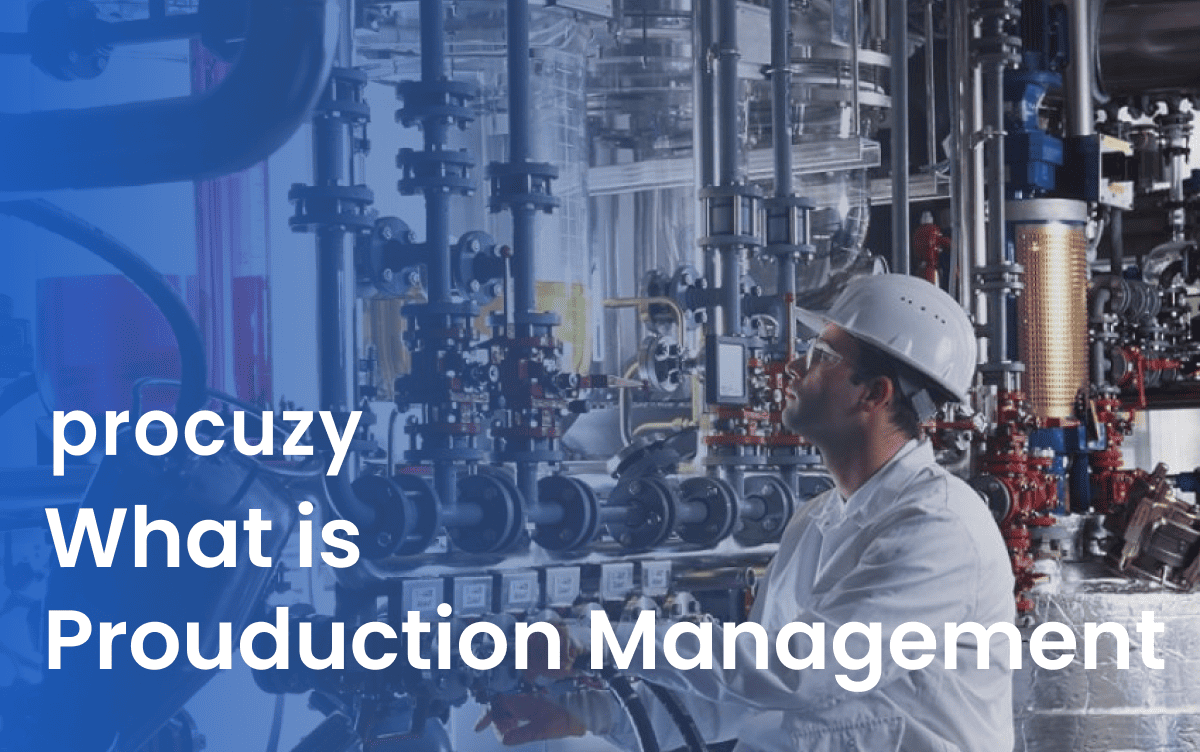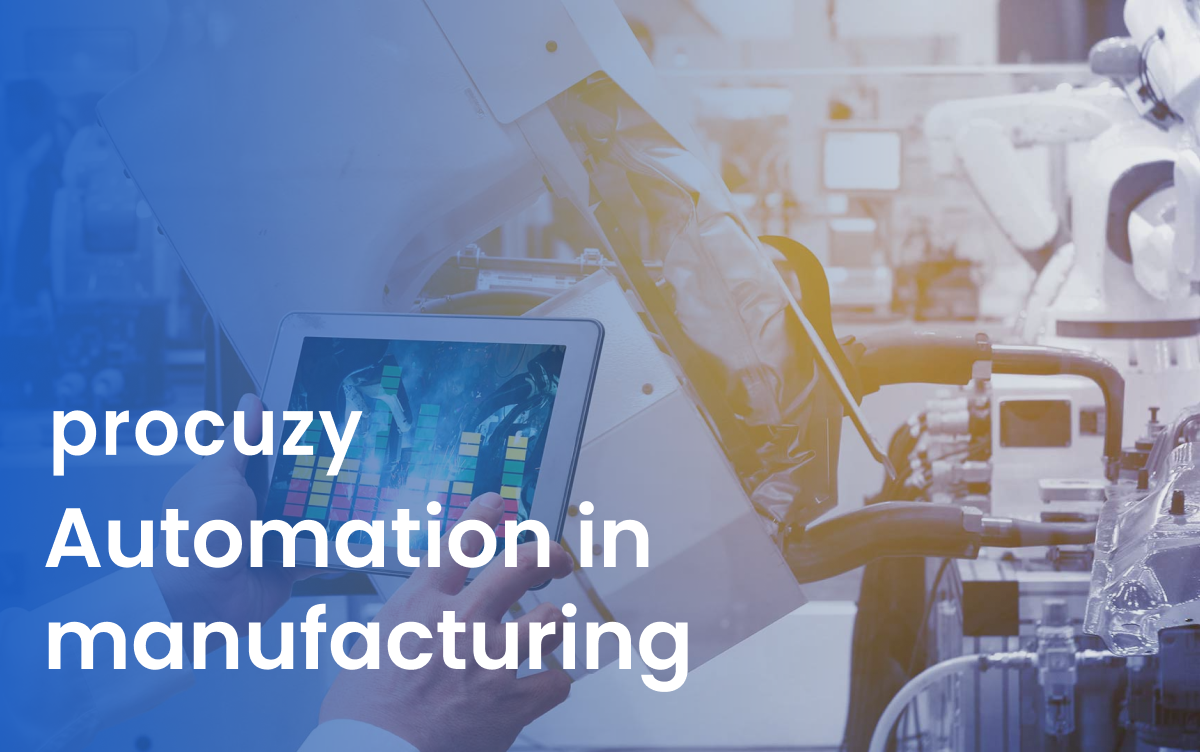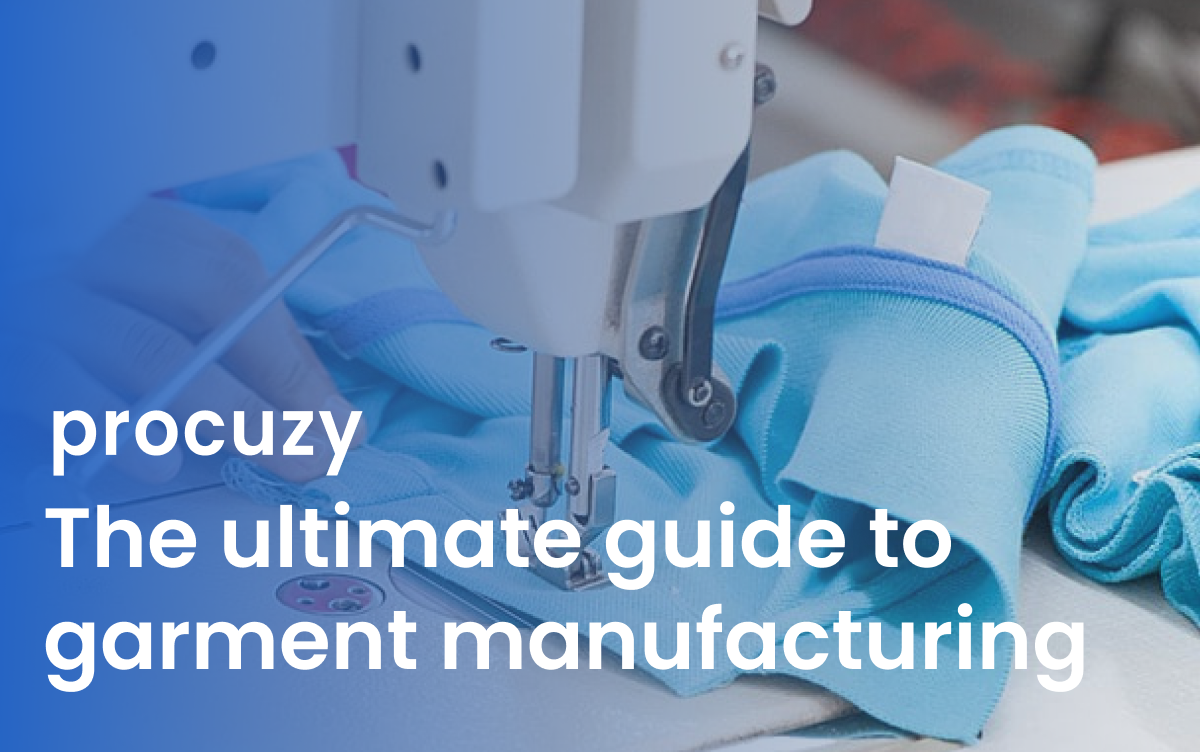
Production management is an extremely important skill that can bring about wonders for any organisation. For a successful business, mastering the technique of production management is necessary. In a way, production management acts as a foundation of any manufacturing unit. Production management focuses on the process of turning raw materials into the company’s final goods and services.
What do we understand by the term “Production”
The term “production” means manufacturing final goods or parts required to build final goods using raw materials and inventory. In simple words, production leads to generation of new goods. Production has economic significance as well, as the goods generated through the technique of production gets sold in the market, raising the GDP of the country. The individuals involved in the production process in an economy are known as producers. Producers are companies and organisations as well. These companies manufacture products that you purchase as customers.
What is Production Management?
Production management can be defined as a procedure of controlling and managing a company’s operations and activities to provide the services and goods it wants to manufacture. Production management consists of organising the activities, executing, and managing the processes that transform raw materials and inventory into finished products and services.
Production management aims at achieving a smooth and hassle free production process with well organised planning and control of business operations in the manufacturing unit.
Through Production Management, a company's production tactics, which requires the use of particular technologies and equipment, and the fulfilment of goals and objectives relating to manufacturing, unit costs, raw materials, quality, fulfilment of customer's demands etc should be implemented successfully.
Two keywords that production management revolves around are - control and execution of the process of production, in order to convert raw materials into finished goods.
Types of manufacturing processes under Production Management:
Continuous Manufacturing-
It is quite evident from the name that what kind of manufacturing process is this. Continuous manufacturing is a process in which manufacturing is carried out continuously all day all night long. Raw materials like slurries, liquids, powders, granules are used in continuous manufacturing.
Batch Manufacturing-
Unlike continuous manufacturing, in batch manufacturing, producers manufacture products in batches as per the needs of the customers.
Repetitive manufacturing-
This type of manufacturing also keeps on going. Robotics and conveyor belts are used in repetitive manufacturing
Functions of Production Management
Functions of Production Management can be categorised as the 6Ms.
Manpower
Machines
Money
Methodology
Materials
Market
The basic and ultimate goal of Production Management is to generate services and goods in the right amount and quantity to avoid wastage, with the best quality to increase customer satisfaction, on time so that there's no reason for the customer to get disappointed, and being under the budget in order to save costs yet provide the best product. Production management involves adoption of new and modern technology and equipment, and a dynamic work environment. Production management also offers ways to make customisations and modifications as required by the customers.
Production management also controls and monitors all the workers who are a part of the organisation or business's manufacturing unit. Through this control and monitoring, there’s a guarantee that the desired product will be manufactured.
Let's try to understand the functions of production management clearly-
Production Planning-
Under Production management, production planning is one of the most important steps that needs to be conducted before a manufacturer dives into the manufacturing process. The first step in production planning involves tactical and calculated decision making of in what manner every further step will be taken. In production planning, production strategy and plan is clearly laid out. How raw materials and resources will be allocated to produce best results in a cost effective manner is also thought of during production planning. Further, the best ways to meet the demands of the customers are laid out during production planning.
Production Scheduling-
Production scheduling refers to making a thorough and extensive timeline of the production activities. Through production scheduling, every activity can be held on specified time and order. This will help minimise wastage of time and efforts and help deliver the products or services to the customers on time. Through production scheduling, the workers in a manufacturing unit can undertake every task and activity as per the schedule. Production scheduling takes into account various factors like availability of equipment and machinery, whether labour is available at the given point of time, availability of raw materials and inventory etc. Using this information, efficient outcomes can be generated through product scheduling.
Production Control-
One important factor to keep in mind is to control and monitor all the workers who are a part of the organisation or business's manufacturing unit. Through this control and monitoring, there’s a guarantee that all the people involved in the manufacturing process is on the same page and working towards the end goal correctly, and the desired product gets manufactured as per customer's demands.
Cost Control-
While producing the best quality product, budget also needs to be kept in mind. Cost control will help not only the business to save money, but will also offer fair and attractive price to the customers.
Proper use of resources-
Through production management, one can achieve maximum utilisation of resources to avoid any wastage and that too in minimum costs. Efficient use of resources will ultimately lead to a better idea of the product and help generate high quality goods.
Maintenance-
Through production management, a smooth and seamless process can be achieved as it would require you to constantly maintain and replace the machinery and equipment as per need. If maintenance is not done properly, it may lead to hindrances and disruptions in the production process because of sudden and unannounced breakage or failure of any of the machines at any given point.
How to implement production management?
Different stages in which production management can be achieved are listed below-
Stage 1- Production Planning and Scheduling
Production planning and scheduling in manufacturing is an essential process in any manufacturing unit. Not only does it help bring out efficient results, it also helps minimise wastage and control costs of production. While production planning acts as a foundational structure of manufacturing by ensuring proper planning of activities and analysing business strategy, production scheduling helps to keep the production activity on the right track. Together, both help to meet the demands of the customers efficiently.
Stage 2- Production Control
It is extremely important to select the appropriate production procedures for a certain product. Making the right decisions on the best kind of technology and equipment, the required capital expenditure, and other issues is extremely important and can he achieved through production control
Stage 3- Improving operations and production management
In the stage 3 of production management and operations, development of more efficient and effective methods of producing the company's goods and services are laid out.
Importance of Production Management
Minimises the possibility of product failure
Production management allows for production planning and scheduling. A blueprint of how the right product will be created is made beforehand. Due to this pre-planning, the possibility of product failure automatically lowers. Production management also take into account the demand of the customers and the demands of the market, which will make the business go on the path of success rather than failure.
Proper use of resources
Production management increases resource use to its maximum while minimising production costs to the minimum. Utilising time and resources efficiently and effectively is made possible by a blueprint, reducing the space between input and output. It will be possible to carry out processes effectively and use the entire working force efficiency by evaluating production processes and maintenance. High-quality goods, speedy rate of manufacturing, and a minimum cost per unit can be achieved through production management.
Conclusion
You may have understood the importance of Production management in a manufacturing unit. For a successful and thriving business production management is a vital skill
Prouczy hopes that the concept of Production management is made a little clearer by this article.
FaQs
Q) What are the 6Ms of the Production management?
The 6Ms of production management are -
Manpower
Machines
Money
Methodology
Materials
Market


